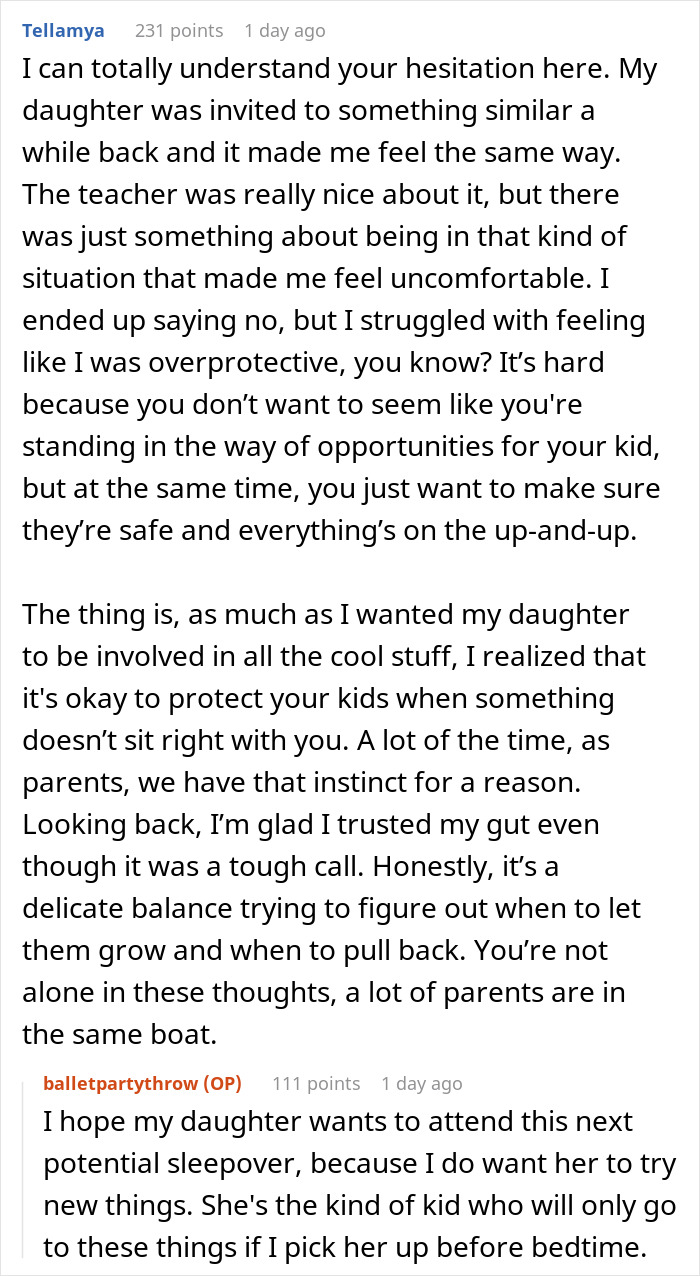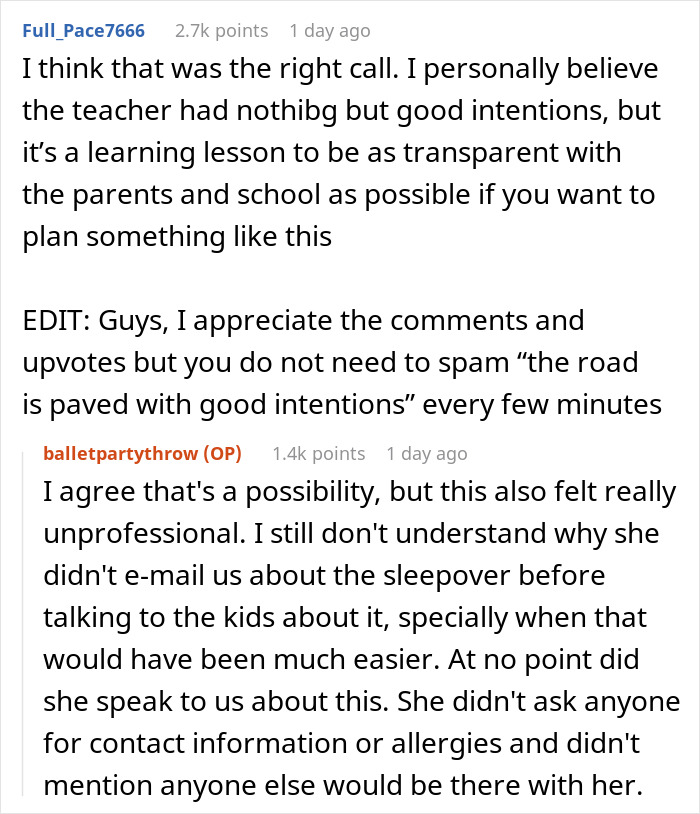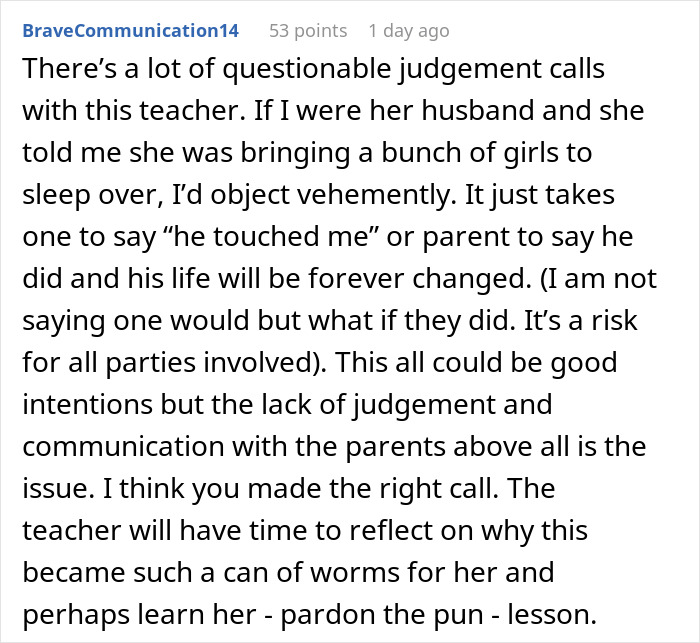Growing up, having a sleepover was the absolute best way to bond with friends. We would spend all night making bracelets, giggling under blankets, gossiping about boys and eating sugary snacks that would leave us with brutal tummy aches the next day. But it was all worth it to spend an evening with your best friends.
And most slumber parties allow kids to feel completely free, as there aren’t any adults around, except the host’s mom and dad when it’s time to eat or turn out the lights. So one mom was surprised when her daughter came home with an invitation to spend the night at her ballet teacher’s house. Below, you’ll find all of the details that the concerned mother posted on Reddit, as well as a conversation with Daisy Ferns, Founder and Lead Tutor at The Parenting Experts Academy.
This woman’s daughter has been attending ballet classes since she was 4

Image credits: Budgeron Bach / pexels (not the actual photo)
But she was shocked when her daughter came home with an invitation to a sleepover at her teacher’s house
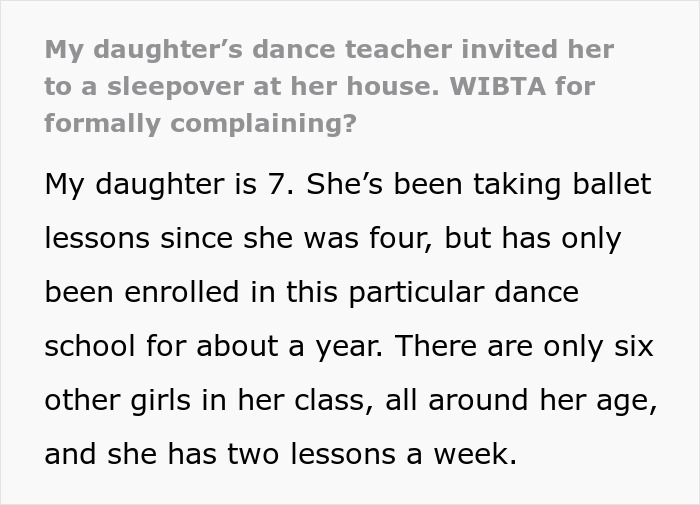
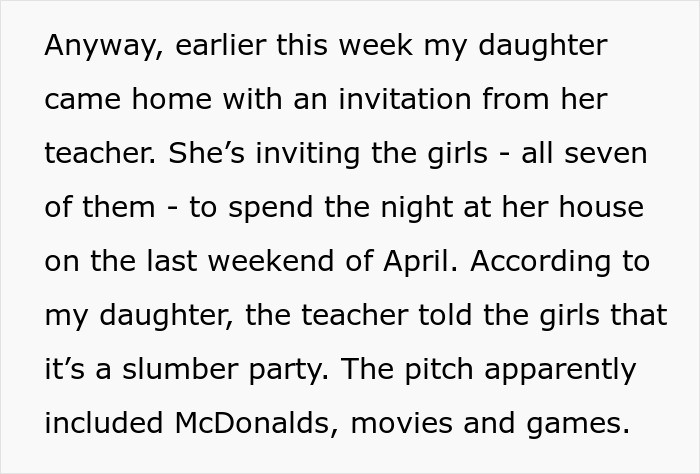
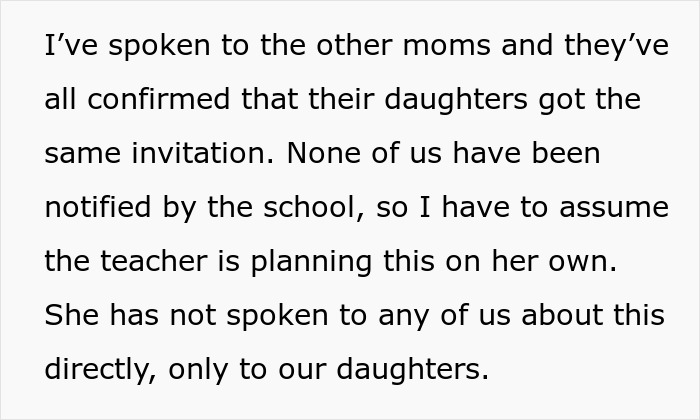
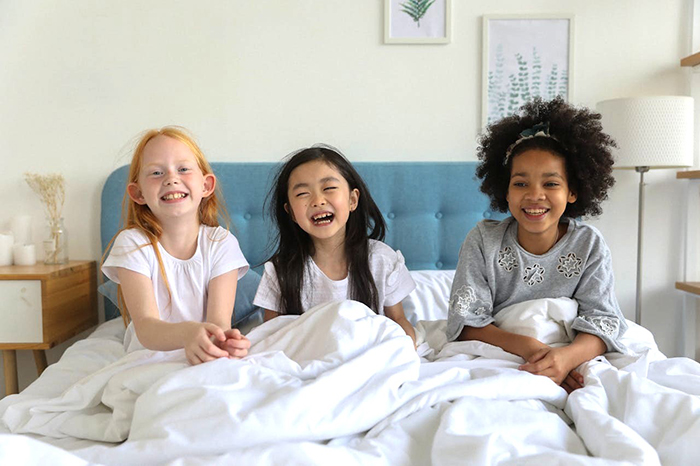
Image credits: Monstera Production / pexels (not the actual photo)
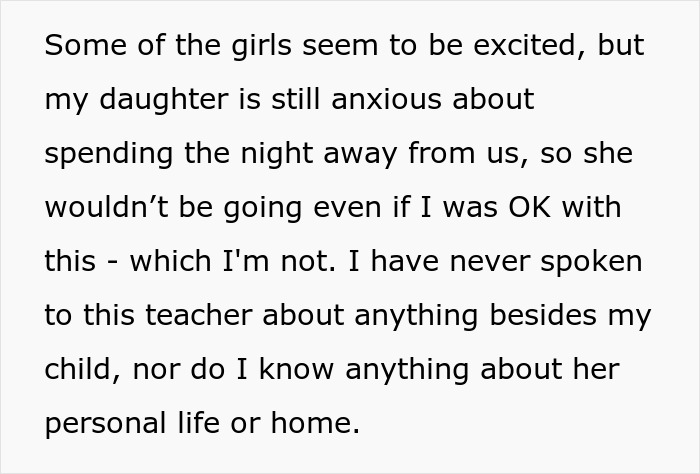
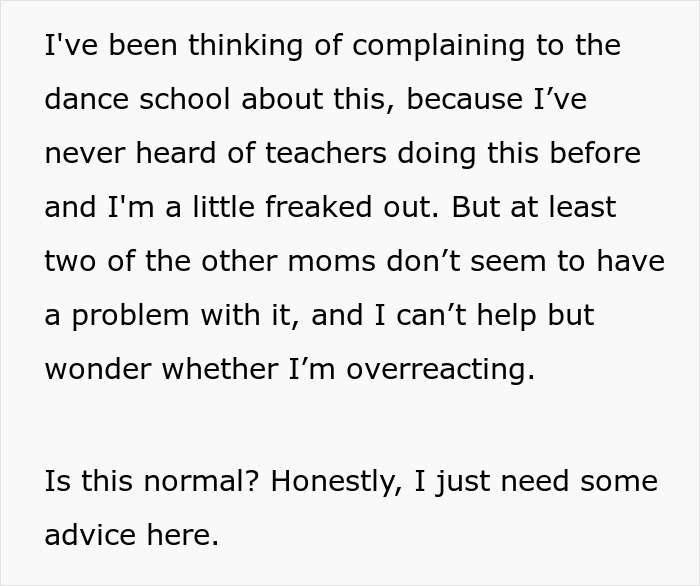
Image credits: balletpartythrow
Later, the mom replied to a comment and provided some more background information
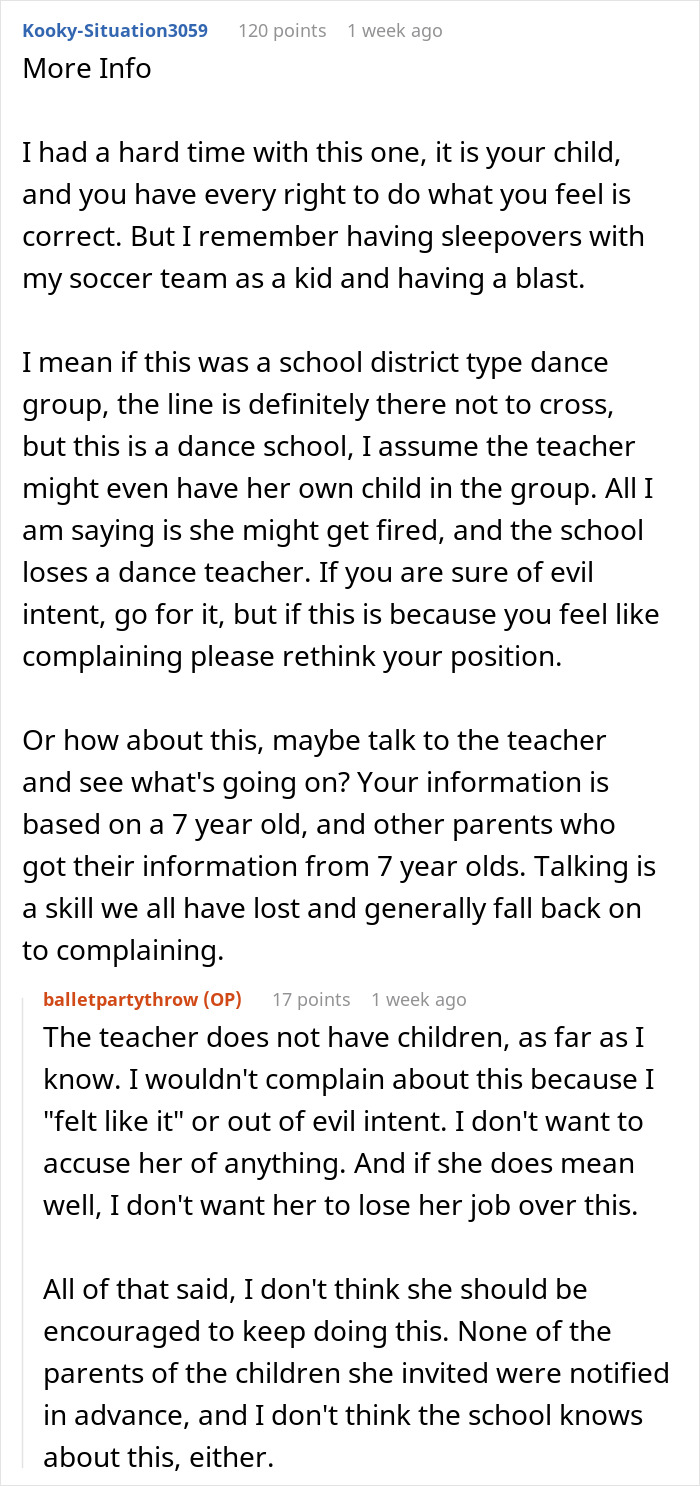
Some readers agreed with the mother’s concerns
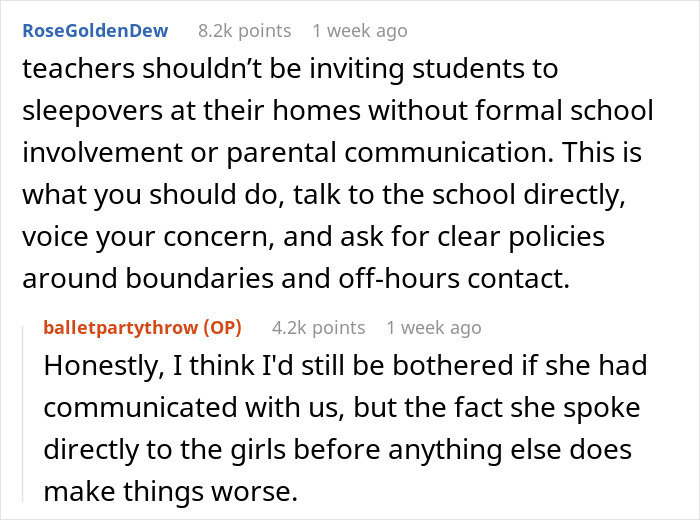
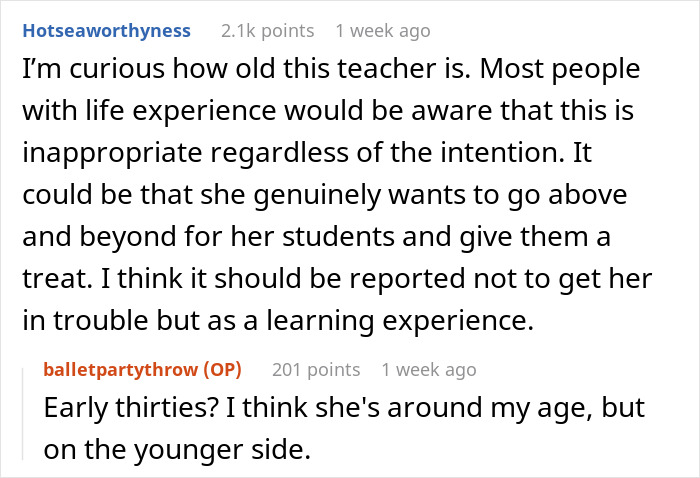
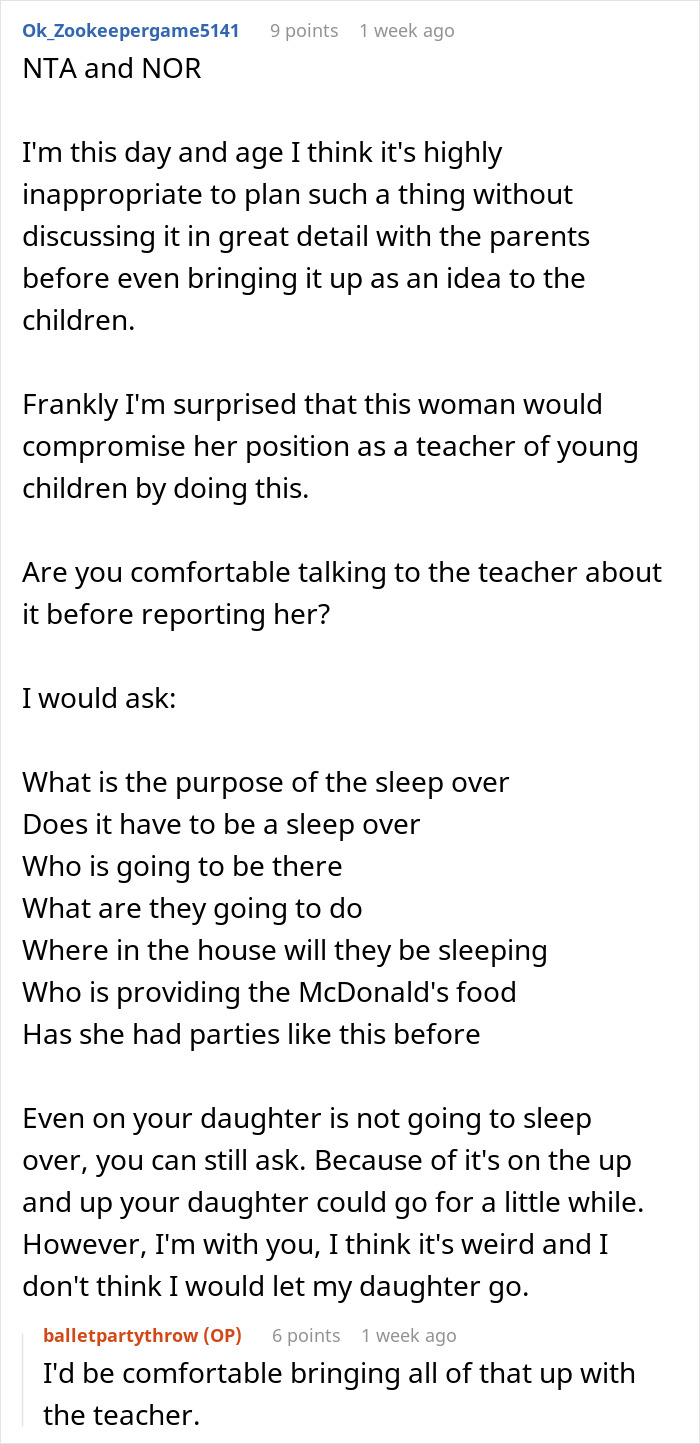
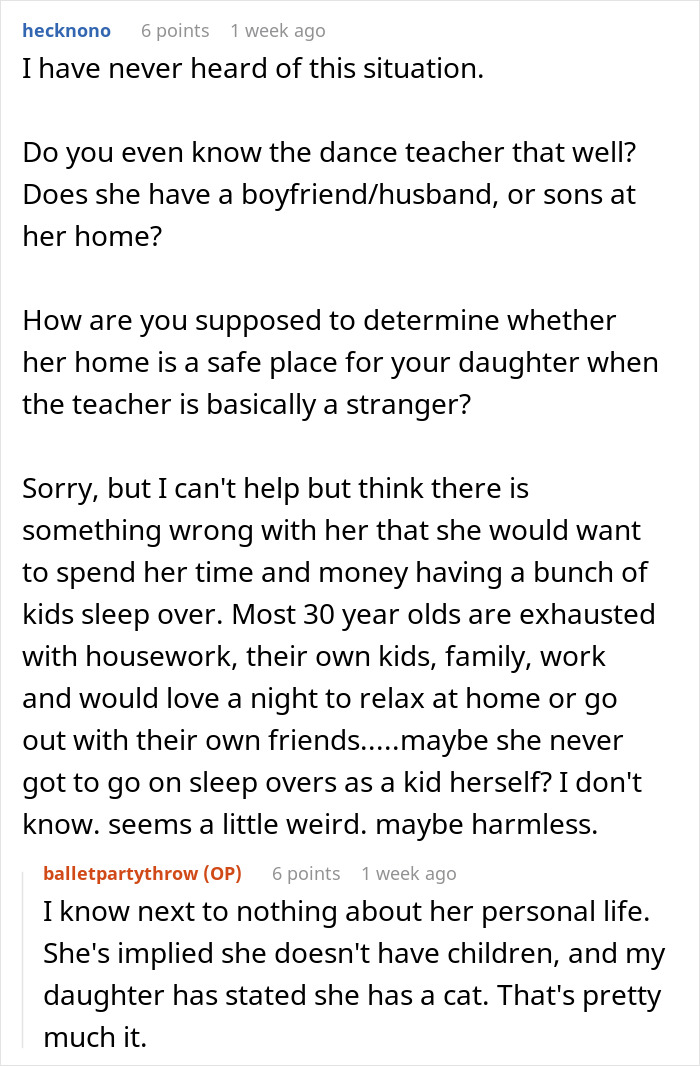

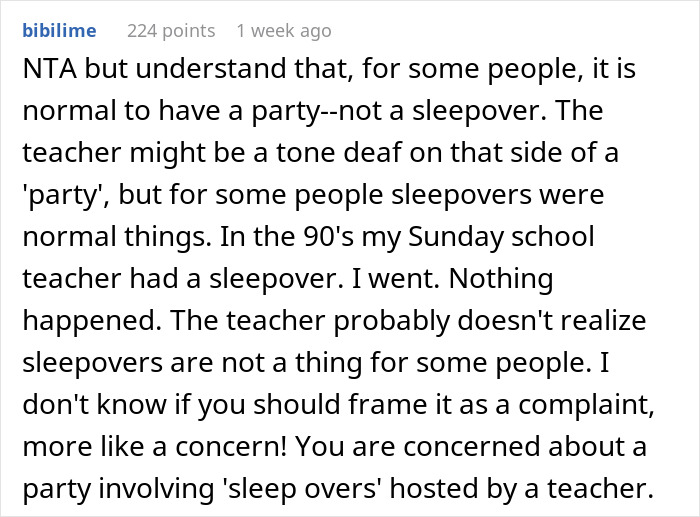

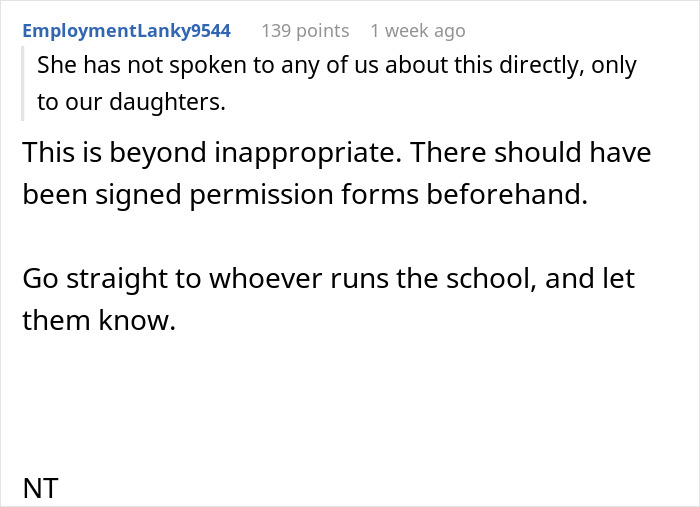
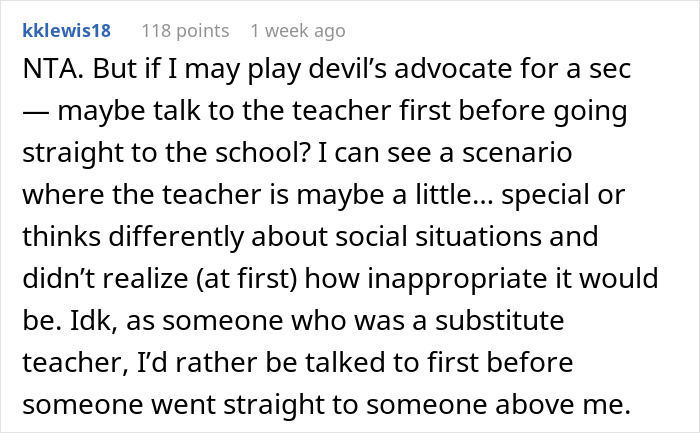
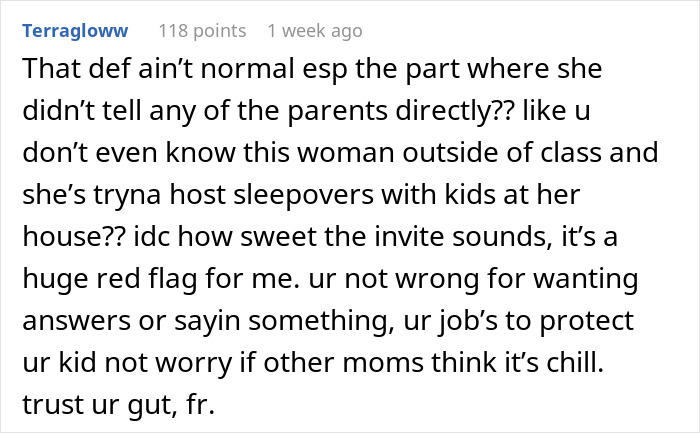
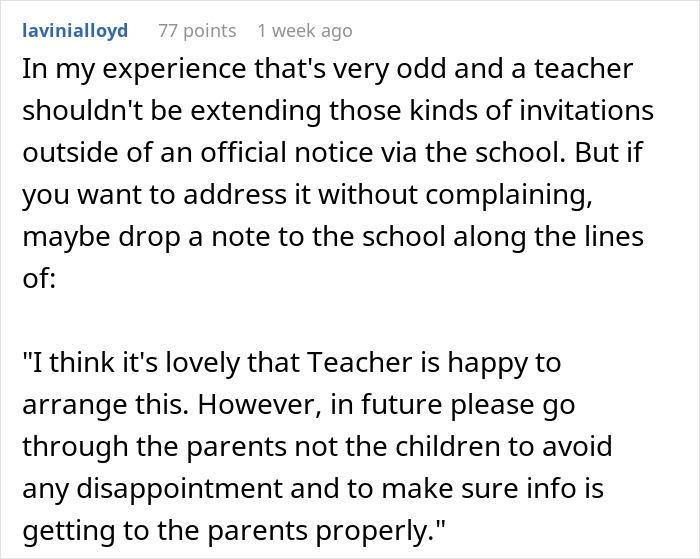
However, others thought the sleepover sounded harmless
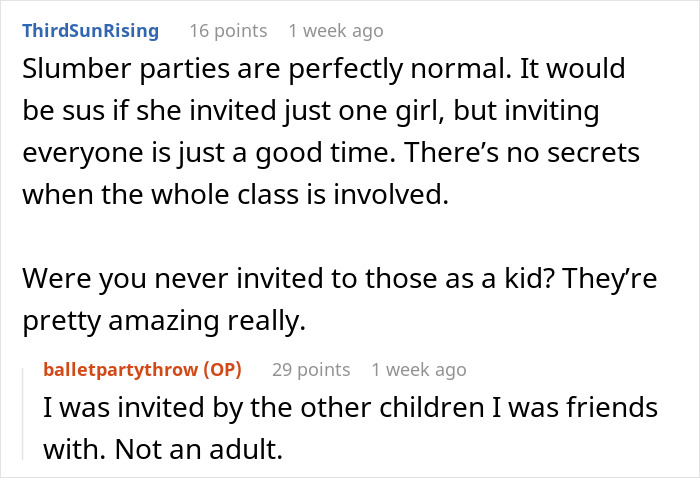

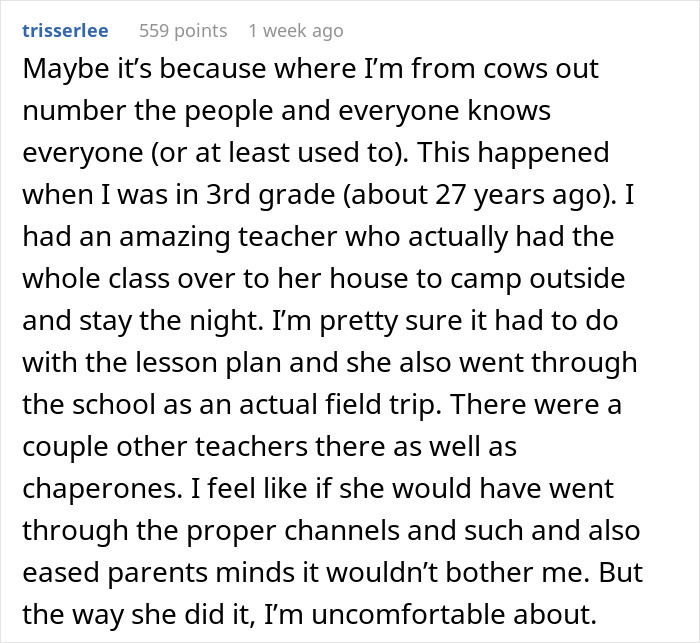

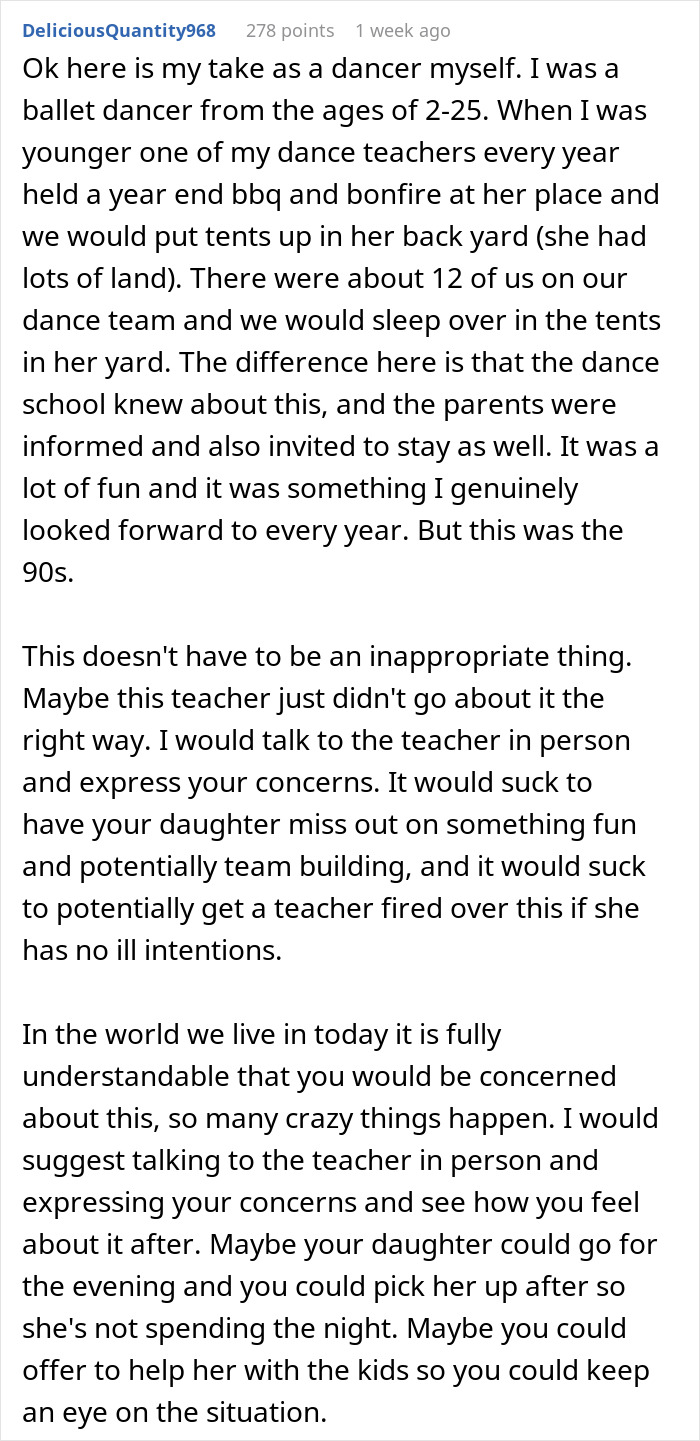

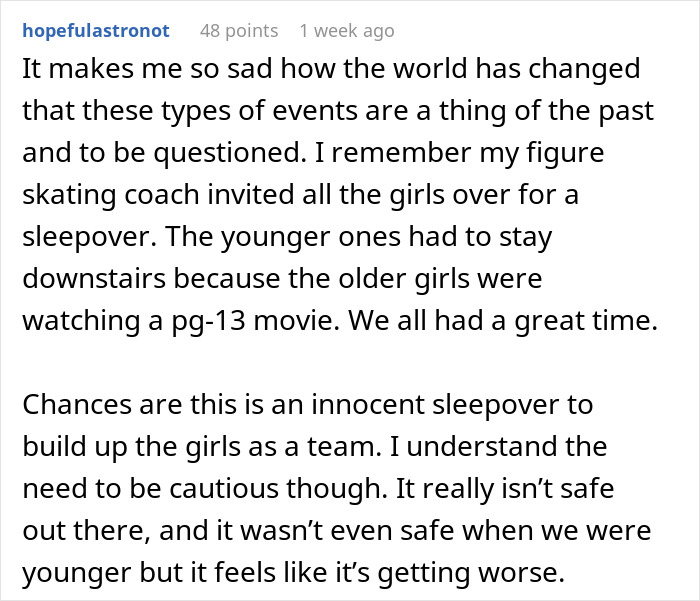

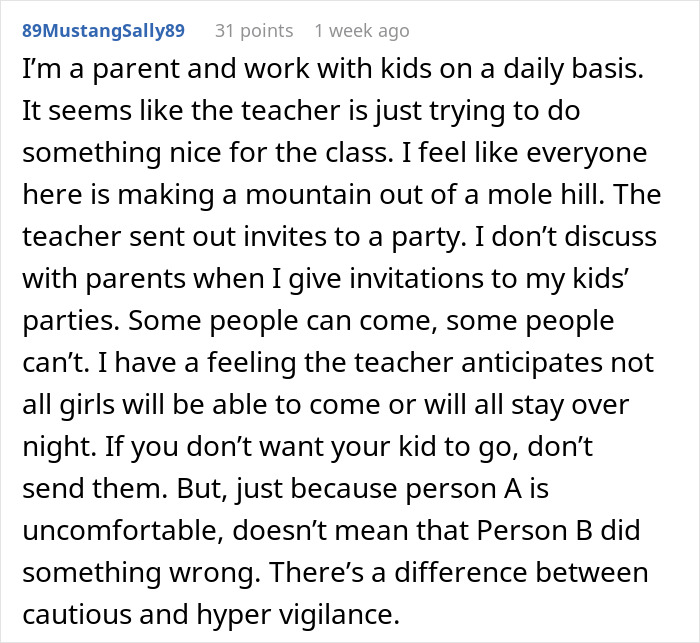
And some called out the mother for being overdramatic




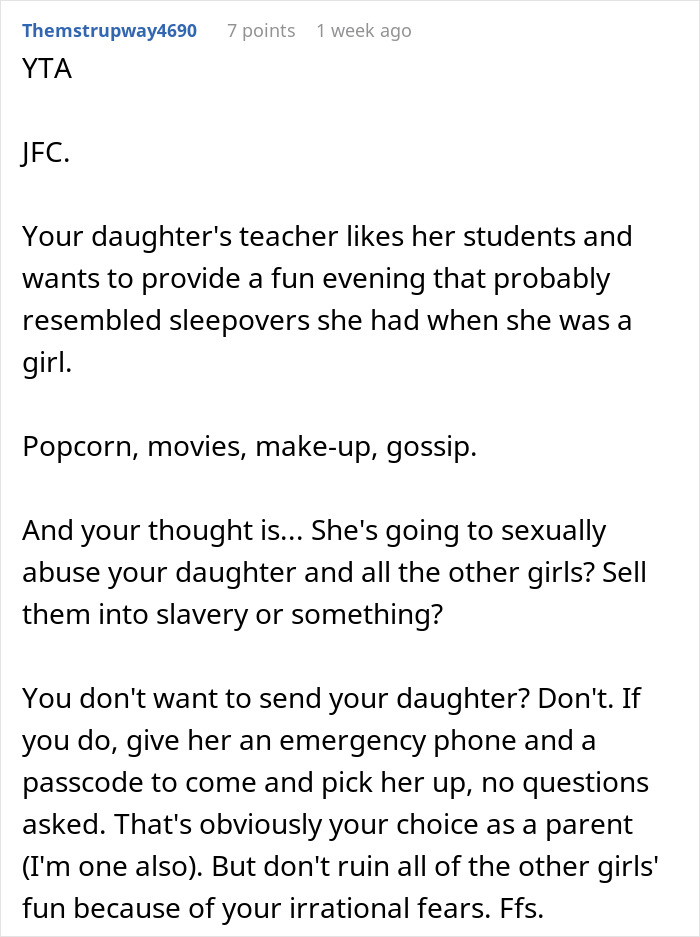
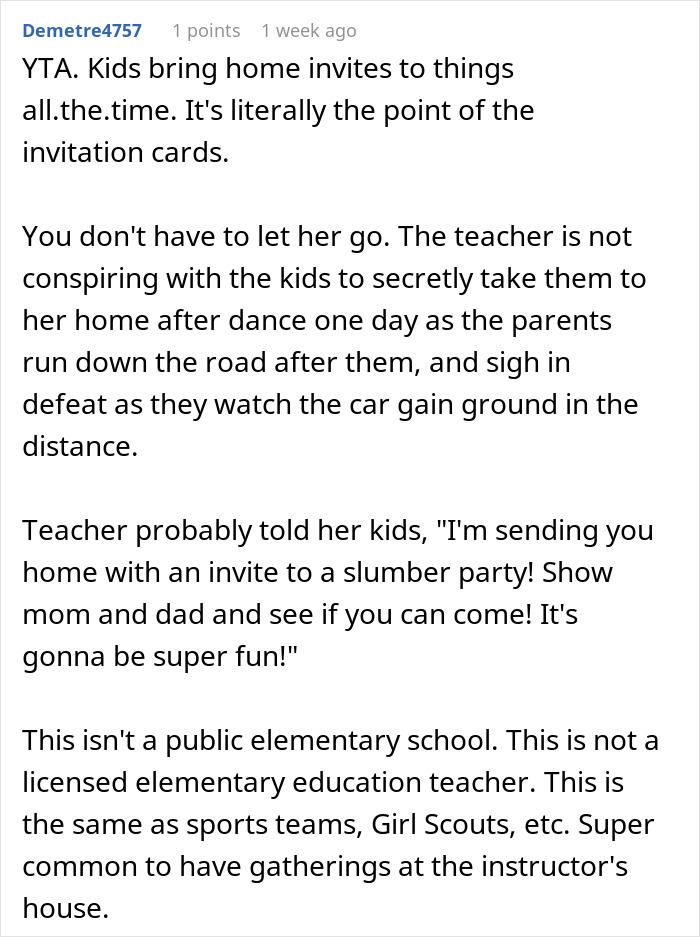

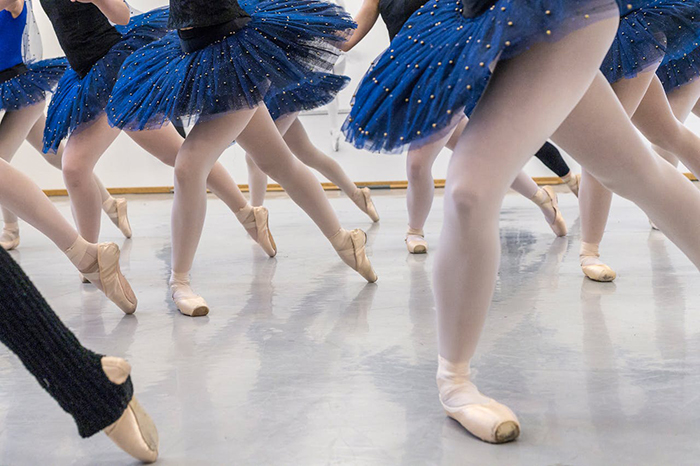
Image credits: Barbara Diependaele / pexels (not the actual photo)
Later, the mom reached out to the dance school and shared an update on the situation








“Sleepovers can be an exciting milestone for children, but they also come with important safety, emotional, and developmental considerations”
To gain more insight into this topic, we reached out to Daisy Ferns. Daisy is a parenting and sleep expert and the founder of The Parenting Experts Academy. In addition to working with families to improve their children’s sleep, she trains aspiring parenting professionals to provide life-changing support to families.
Daisy was kind enough to have a conversation with Bored Panda about what information parents need to know before letting their kids attend a sleepover.
“Sleepovers can be an exciting milestone for children, but they also come with important safety, emotional, and developmental considerations,” she noted. “Before agreeing to a sleepover, parents should be encouraged to ask thoughtful questions and trust their instincts. This is about more than just fun — it’s about safeguarding and setting healthy boundaries.”
First, Daisy notes that it’s best to know the host’s parents personally. “It’s essential that parents have a trusted relationship with the host family. A simple school-gates hello is not enough — parents should know the values, boundaries, and parenting style of the adults who will be supervising the sleepover,” she explained. “Do their approaches to discipline, privacy, and communication align with yours?”
Moms and dads should also be aware of who will be there. “Ask who else will be present in the home — both children and adults. Are there older siblings? Other guests? Will there be appropriate supervision? The dynamics change significantly depending on who’s in the house,” Daisy shared.
Parents should also be clear about where the kids will sleep. “Sleeping arrangements matter for both physical and emotional safety,” the expert says. “Will the children be sleeping in a shared space? Are boys and girls mixed? Are children expected to change clothes or shower in a shared space? These seemingly small details can lead to big discomfort or even risk for children.”
Emotional readiness is another important factor for parents to consider. “Not all children are emotionally ready for sleepovers at the same age,” Daisy noted. “Separation anxiety, bedtime fears, or sensory needs may make sleeping away from home distressing — even if they’re excited at first. A child who struggles to express discomfort clearly may end up enduring something they shouldn’t.”
The parenting expert says it’s wise to have a communication plan in place as well. “Make sure your child knows they can contact you at any time — and that it’s okay to change their mind. Establish a simple code word they can use if they’re uncomfortable and want to be picked up without having to explain themselves.”
Daisy also noted that clear boundaries and supervision are key. “Ask what the evening’s activities will involve, and what supervision looks like overnight,” she suggests. “Are screens restricted? Are there rules around social media or devices? Who will be monitoring?”
Finally, the expert says moms and dads should trust their instincts. “If something doesn’t feel right, it’s okay to say no. You don’t need to justify protecting your child’s well-being.”
“When a parent senses that something may be inappropriate — even if they can’t fully articulate why — that instinct should never be ignored”
“Ultimately, a sleepover should never be treated as just a rite of passage. It should be a carefully considered decision that prioritizes emotional safety, supervision, and trust,” Daisy added. “When in doubt, offer an alternative — like a late playdate with a pick-up before bedtime — until your child and your comfort level are truly ready.”
So is it ever appropriate for a teacher to invite their students to a sleepover? The expert says no, regardless of the children’s ages. “This crosses professional and safeguarding boundaries and raises serious concerns — not only about physical safety but also about the blurred lines in the teacher-student relationship,” Daisy shared.
“Even with the best intentions, this kind of setting creates an inappropriate power dynamic and removes the protective layers that exist within school or public environments,” she explained. “I would strongly question the motivation behind such a decision and encourage parents and schools to be vigilant when it comes to these kinds of proposals.”
But Daisy added that there are plenty of safe and appropriate ways for children to bond that uphold professional standards and prioritize child safeguarding. “For example, organized sleepovers through recognized groups — such as Brownies, Scouts, or sports clubs — are held in neutral, public venues like church halls or soft play centers,” she says. “These events are carefully structured, supervised by multiple vetted adults, and supported by clear safeguarding policies.”
“Teachers can also facilitate bonding through school-led activities like after-school clubs, trips with multiple staff members, or team-building events during school hours,” the expert continued. “The focus should always be on maintaining professional boundaries, transparency, and child safety.”
“Children absolutely benefit from building social connections — but the context must be appropriate, well-supervised, and above all, respectful of professional roles and safeguarding best practice,” Daisy added.
So how should parents respond when they feel uncomfortable in situations like this? “When a parent senses that something may be inappropriate — even if they can’t fully articulate why — that instinct should never be ignored,” the expert shared. “Gut feelings are often informed by subtle red flags, and they exist for a reason: to protect our children.”
“Boundaries exist not to limit childhood experiences, but to protect them”
If speaking in person feels too daunting or emotional, Daisy says putting concerns in writing can be a helpful first step. “This allows the parent to express themselves clearly, calmly, and thoughtfully — and provides a record of their concern. It also gives the organization time to consider and respond appropriately.”
“Ultimately, the child’s safety and wellbeing must always come first,” the expert noted. “Even if a teacher’s intentions are entirely honorable, the context may still be inappropriate — and other parents or safeguarding leads may be unaware of what’s happening. By raising the concern, the parent could be protecting not only their own child but others as well.”
Daisy also pointed out that responsible adults and organizations should welcome safeguarding conversations. “Any environment that discourages open dialogue around child safety is not one that has children’s best interests at heart. Parents don’t need to wait for ‘proof’ to speak up. The instinct to protect is not only natural — it’s necessary.”
Finally, the expert shared that it’s important for parents to remember that not every child is ready for a sleepover at the same age, and that’s perfectly okay. “For example, my own daughter wouldn’t be emotionally ready to stay overnight with someone outside the family at age 7 — and that has nothing to do with trust and everything to do with emotional development,” she told Bored Panda.
“Children often want to join in because their friends are doing it, but as parents, our role is to make decisions based on what is right, not what is popular,” Daisy explained. “Our job isn’t to be their friend — it’s to be their safe, responsible adult.”
“Sleepovers, like any experience away from home, require emotional readiness, mutual trust between families, and clear safeguarding boundaries. And when those boundaries are crossed — particularly in professional settings like schools or clubs — we must speak up,” the expert says.
“Boundaries exist not to limit childhood experiences, but to protect them,” Daisy added. “And protecting children should always come before avoiding discomfort or keeping the peace.”
Feel free to share your thoughts on this situation in the comments below, pandas. Do you think this mother was right to shut down this slumber party? Then, you can check out another Bored Panda article discussing similar issues right here.
Readers supported the mom’s choice, noting that the teacher made some questionable decisions


